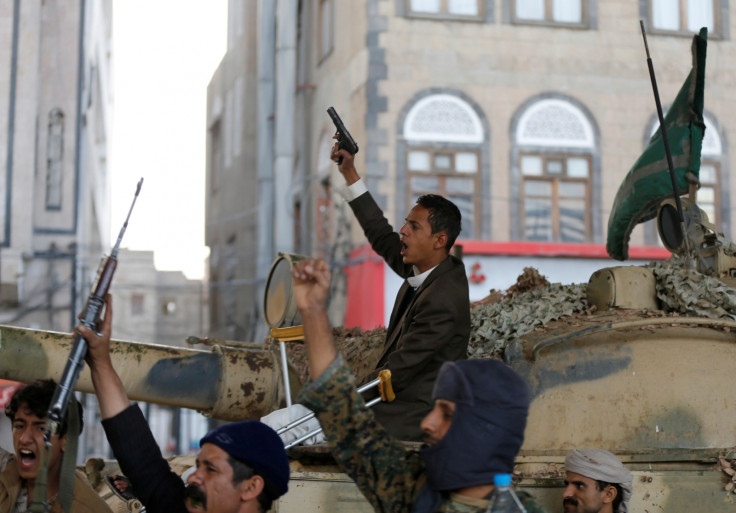Yemen crisis: War or peace, what will follow former Yemeni president Ali Abdullah Saleh's death?
Houthi leader Abdul Malik al-Houthi said their fighters killed former Yemeni president Ali Abdullah Saleh for his "treason".
With the killing of former Yemeni president Ali Abdullah Saleh, and takeover of capital Sana'a, the country's Houthi rebels have declared an "end to the crisis" in the war-torn nation. They also look at Saleh's death as a victory over the Saudi Arabia-led coalition that has been fighting against the rebel group for years.
Saleh, who recently switched sides in the Yemen civil war by throwing his lot with the Saudi coalition and abandoning the Iran-backed Houthis, was reportedly killed in a roadside ambush on Monday (4 December) outside Sana'a.
Houthi leader Abdul Malik al-Houthi said their fighters killed Saleh for his "treason" and termed Saleh's loyalists as the greatest threat to the Arabian Peninsula. In a lengthy televised speech aired on the Houthi-run Al Masirah TV network later on Monday, the leader congratulated Yemenis "on this historic, exceptional and great day in which the conspiracy of betrayal and treason failed".
The Houthi leader also clarified that they will not seek vengeance against Saleh's party, General People's Congress (GPC), and would maintain the country's republican system, according to Al Jazeera.
Will peace eventually prevail in the country or will the Houthi move intensify attacks on them from the Saudi-led coalition? Experts believe the war is far from being over in the Middle East nation.
"There is nothing holding back the Saudi coalition" after Saleh's death, Catherine Shakdam, a director of programmes at Shafaqna Institute of Middle Eastern Studies in London, told RT news. She believes that the former president "was still capable of building bridges with the Saudi coalition" and "keep communications open and to actually negotiate humanitarian aid to get through to the Yemenis", but fell to a "betrayal" at the hands of the Houthis.
Soon after killing Saleh, Houthi rebel fighters took control of the capital and Houthi tanks were seen patrolling the streets, according to RT.
In retaliation for the aggression, current Yemeni President Abd-Rabbu Mansour Hadi has urged the country's citizens to "rise against" the rebels and called for the launch of a massive offensive against them.

Saleh's death could push Yemen deeper into a more savage war, believes Shakdam, warning that the situation may spill into "an actual war now, where tribes will want to seek revenge".
The uncertainties in the country also revolve around who will lead the GCP next and if they will reunite with the Houthis or follow Saleh's footsteps in aligning with the Saudi coalition.
Saleh's son, Ahmed Abdullah Saleh, features among the possible successors, according to experts. A former commander of the Yemeni army's Republican Guard, the junior Saleh has been living in the UAE for more than four years and it is still unclear if he would return to the country following his father's death.
Saleh's nephew, Tareq Mohammed Abdullah Saleh, is an army general who has been serving as Saleh's military adviser for years. He too has emerged as a future leader of the GCP.
Hakim al-Masmari, editor-in-chief of the Yemen Post, told Al Jazeera TV that it was likely that the nephew would take control of the party, especially the military operations against the Saudi-led coalition. Saleh's death may lead the coalition to further step up its military operations against Houthis, warned Masmari.
Gamal Gasim, associate professor of Middle East Studies at Grand Valley State University, told the TV channel that the situation in Sana'a depends on the actions of the Houthi militia.
If Tareq succeeds in rallying support of the Republican Guard and Saleh's own Sinhan tribes, chaos could continue in the Yemeni capital.
"It remains to be seen if Saleh's son, Ahmad Saleh ... would go back to Yemen and assume leadership of what's left of his father's forces," Gasim noted, warning that such a move would require the support of Saudi Arabia and the UAE. "Timing here is critical. If they want to succeed in that effort, they must make their move within a window of 48 hours."





















